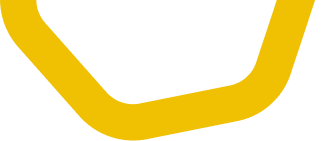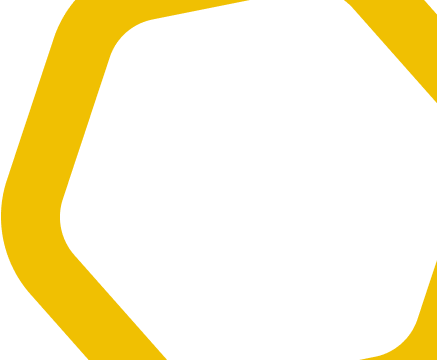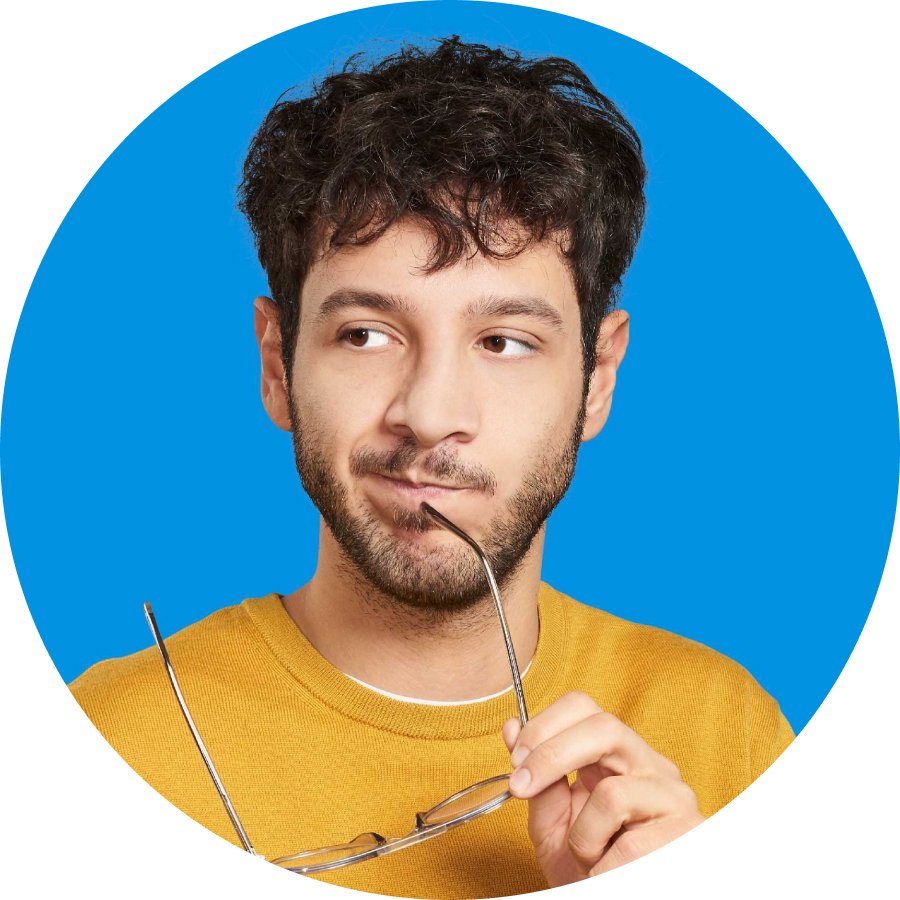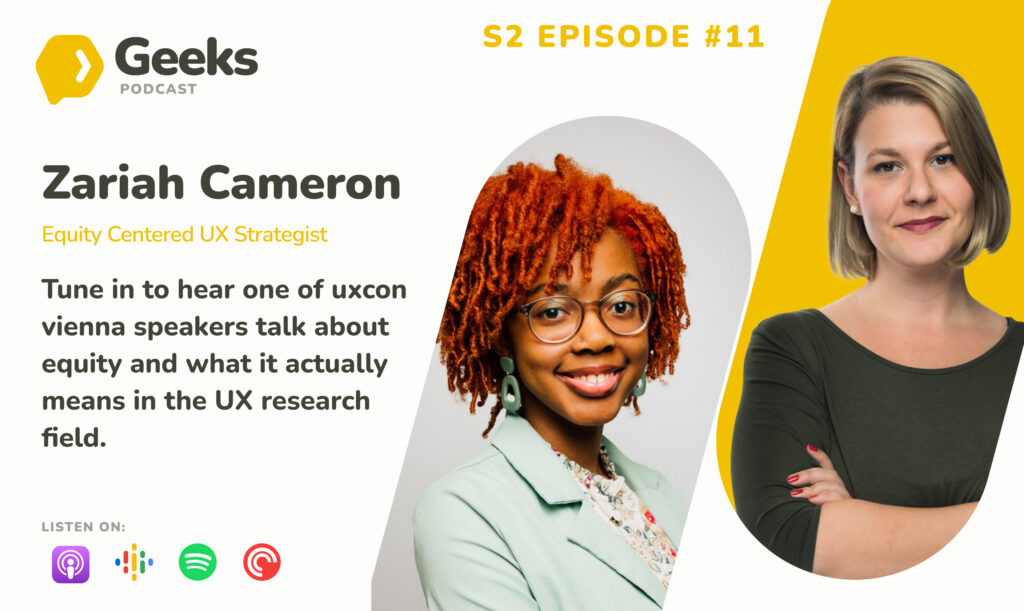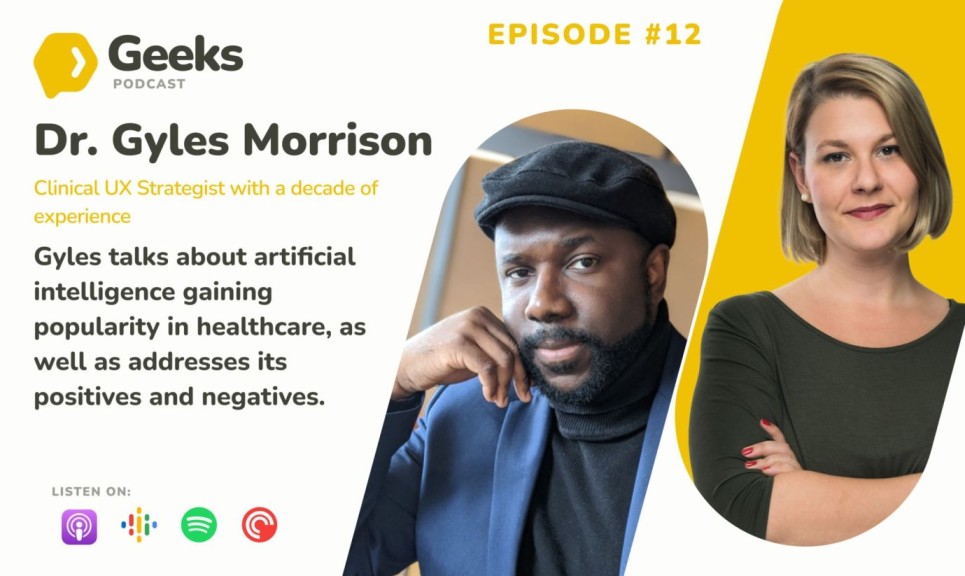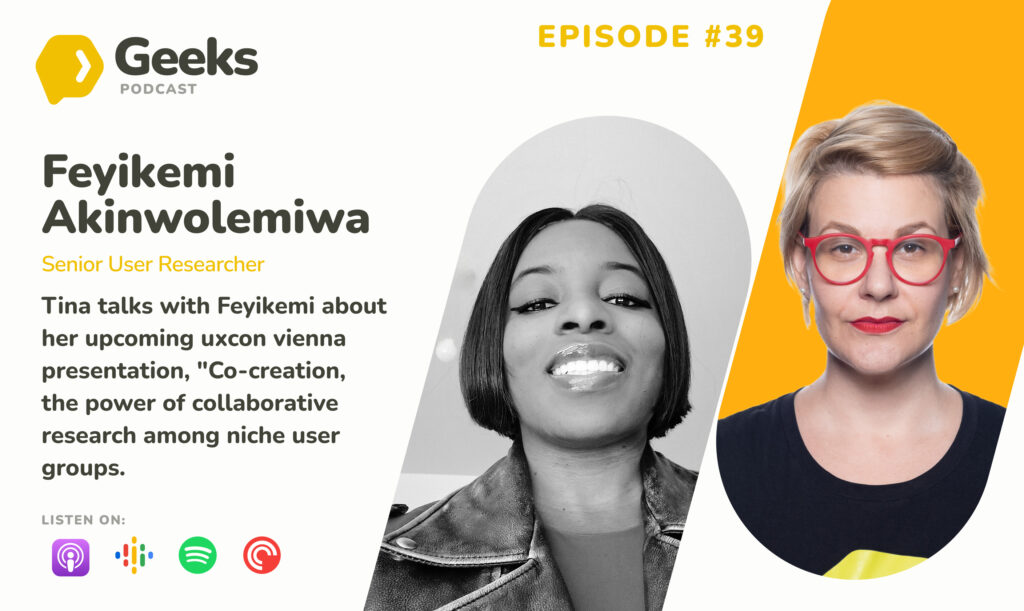Episode highlights
00:01:21 Julian’s Background
00:11:31 The Connection Between Facilitation and ResearchOps
00:18:38 When to Start with ResearchOps
00:20:47 Democratization of Research
00:29:56 Traits of ResearchOps Professionals
00:38:06 Tips and tricks for ResearchOps
00:42:47 Recommended Resources
About our guest Julian Della Mattia
Julian Della Mattia is the UX Research Lead at Kiwi.com and founder of the180 Agency in Spain. With over 7 years of tech industry experience, he specializes in helping startups and scale-ups establish robust research practices from scratch. Julian excels in facilitating research processes, optimizing ResearchOps, and providing valuable insights to build efficient research infrastructures. His expertise includes participant recruitment systems, research data organization, tool selection, templates, and documentation. Having aided numerous clients in launching their initial research projects, Julian has a proven track record in the field. Connect with Julian on LinkedIn to learn more.
Podcast transcript
[00:00:00] Tina Ličková:
Welcome to UX Research Geeks, where we geek out with researchers from all around the world on topics they are passionate about.
I’m your host Tina Ličková, a researcher and a strategist, and this podcast is brought to you by UXtweak, an all-in-one UX research tool.
This is the 14th episode of UXR Geeks. And this time we invited and spoke to Julian, who is a UX research lead at kiwi.com and a founder of the 180 agency. He’s based in Spain and helps teams build research practices from scratch and specializes in facilitation and research jobs. As I now start a new role as a ResearchOps Specialist, I was really curious about Julian’s experiences in this field and how he’s establishing these practices internally, as well as an external consultant.
No matter if you’re new to ResearchOps or have some experiences already, I considered this discussion to be very enriching on a very practical level, with a lot of good tips and examples of good practices.
Hello, Julian.
[00:01:21] Julian Della Mattia: Hello, Tina. How are you?
[00:01:23] Tina Ličková: Good, good. A little bit, sick or not sick, it’s like in between, I am okay and I’m like, I’m dying.
[00:01:30] Julian Della Mattia: How are you? Yeah, I think we’re all in the same boat here. It’s this type of month of real kind of sickness, not fully sick, but also not fully healthy. So we are in this gray area of, it’s winter health, I call it.
[00:01:44] Tina Ličková: Yeah. Although I have to say winter in Vienna is probably a little bit different than winter in Barcelona, where you are at.
[00:01:51] Julian Della Mattia: Yeah, definitely. Yeah. I have to say my winter is winter and easy mode. I have to say humidity is tricky because you didn’t see the temperature. Oh, it’s nine, 10 degrees. Yeah, but it’s like 60, 70 percent humidity.
You feel it in your bones.
[00:02:10] Tina Ličková: Thinking about this, how could I show you to people? We are offering shorter videos on social media, but If people wouldn’t see you, how would you describe yourself to the audience? Like they meet you at a party, who should they expect?
[00:02:26] Julian Della Mattia: Okay. Depends on which kind of party. Okay. Yeah, but I’d say I’m a bit of a mixed bag of things, because I’m a researcher, I’m currently a UX researcher at Kiwi. com, but I’m also a facilitator and I have my own research and research agency. So I’m a mix of these three things. I have this. researcher side and this ops side and this facilitator side. So I’m yeah, between worlds, I would say, but I think all of them are connected. So I know I will present them all together.
So I’m a researcher and a facilitator. So yeah, that would be pretty much it. I’m based in Barcelona, I’m half Argentinian, half Italian. Those things I ask, depending on the context and the party, I know by each other where I’m from.
[00:03:07] Tina Ličková: What do we just say, how do you explain people? Because this is. Always the question, what do you do for a living? What is your pitch on your role?
[00:03:14] Julian Della Mattia: Yeah. Now that we are, around Christmas time and everything, you have to, when you meet your family, if you work in UX, this is a typical question. What is it that you actually do is how do you explain UX or UX research to your aunt or your cousin or your grandma, even, so nobody I say that I help companies learn more about the users. I can summarize it like that- from the research side. Then, from the facilitator side, I help people get together and achieve things, move things forward. And I have teams, collaborate better and work more efficiently. And OPS is more about building infrastructure and making research teams more effective.
So yeah, normally if I have to sum it up in one line, I would say I have teams. Learn more about the users that also get together and collaborate more efficiently to move things forward.
[00:03:59] Tina Ličková: And you’re combining all those things, facilitation, ResearchOps, nowadays, more even than the facilitation where we’re speaking, but I would start with the facilitation.
How did you get there? Because for example, my story with facilitation is coming from HR consulting before it was even cool in the UX research space. And what is your story towards your education?
[00:04:21] Julian Della Mattia: Facilitation was actually my entry gate to the UX world. I started off as a product manager actually, and then my connection to UX and to research in particular came from, as a product manager, I was talking to customers, I was doing product market fit, customer discovery.
I was, at that time it was the book from Steve Black, Get Out of the Building was like, the thing you would read every, it was the mantra of that time. So I would go, literally go out of the building and start talking to people and so on. So there I started, okay, I need to learn how to do this properly.
And so I started getting in touch with research by consuming information and by reading books and I ran into the Sprint book by Jake Knapp. So there I started, I know I love the design sprint. And I said, yeah, this is great. I was super excited about it. So I studied it. I read it like five times back to back.
So I was super into it. And then when my first job in New York was at an agency that did sprints and also research. So then that’s how the mix started, so facilitation started from there. So from product manager, I switched to this facilitator slash researcher role, which is basically the agency and started combining them naturally from the start.
So it was, I’m not going to make up a fun story on this hero story of, yeah, facilitation came after this and it’s just, I was traveling and normally at the time I was living in Argentina, it was not easy to get books. Amazon doesn’t, it’s not number one there. People don’t know this, but they’re not king there.
So to get books is super hard because the Kindle store is not there. So every time I traveled abroad, I bought like 10, 12 books. So in one of those travels, I bought Sprint and that’s how it all started. It was not just Sprint, but it was like Sprint and other research books. Everything came together at the same time.
So to help me do this transition, so it basically started with Sprint. And then I started saying, yeah, okay, maybe we can take parts of the Sprint. And we can then atomize it and just do exercises. And then one thing led to the other. And then I started finding books that also had exercises, like game storming, or started reading for example, I started incorporating stuff from him into the workshops.
So it started to come together and as it goes, as it went, it just came naturally together.
[00:06:32] Tina Ličková: When we were speaking the first time telling me the sentence I remember was I want product teams to work efficiently and you were mentioning it already here a few times. How does facilitation help you in achieving and helping product teams to work more efficiently?
[00:06:51] Julian Della Mattia: Here you have, I will give you two, two takes from this because one, one thing is from a researcher role, it’s like, how do you, how does it help researchers, get a work together with other roles in within a product team, that’s one thing. And then overall, let’s say I stand, I just put my facilitator hat on and I forget about my researcher hat and I just speak from a facilitator standpoint, facilitation can help get people together, basically facilitation. I have a definition for a workshop. There are many, I don’t present mine is not, it’s not perfect, but it’s the one I stick to. So it’s what every time workshop, I’m meaning putting people together in a room, making and going through a series of exercises within a limited timeframe to achieve something, to achieve an outcome.
So basically the way this helps teams work more efficiently, you want an outcome that probably involves many people, certain roles and certain times with different points of view and so on. And you put them together in one room, you organize, let’s say one hour, two hours, three hours, you may go through a series of exercises to achieve something.
You’d let’s say you want to align a team on a yearly strategy. Let’s say you want to align a team on how, where should the product go? Let’s say you want to align a team on a particular project, okay. How, what should we do? What’s the deadline? What should we take into account? What’s the point of view from engineering, from design, from products, getting people together, because normally these things happen in conversations.
That nominee is super broad and then it starts like an email and then another meeting and so on. And then, you will get the same information at the same alignment in maybe one month. But with facilitation, you can reduce it to maybe a week.
[00:08:27] Tina Ličková: It’s actually reducing the silos.
[00:08:30] Julian Della Mattia: That’s part of it. Yeah. You’re reducing silos. You’re putting people on the same page. You’re also making everybody contribute to something, you’re aligning expectations. You’re also defining clearly the scope and you’re defining clearly where you want to go and how the project should be or should look like. Sometimes what happens is when you start a project, there’s this scope creep.
And yeah, at the beginning we aligned on this and then it changed and then it moved and it was not clear. And then we were missing the input from another team and we were missing stuff, and then it dragged on for weeks. So there are many sides to that. Also in the case of silos, sometimes you have, let’s say you have a complex product that has different teams or different spots or different verticals. Sometimes workshops can help break these silos and say, okay, these teams communicate or parts of each team communicate to each other.
And they all come together at a specific moment. To do something that will impact all teams.
[00:09:26] Tina Ličková: And I got stuck at one thing because if I am going back to how I was told to facilitate years back, my mentor used to always literally head when we were in the sessions and he was putting the head like, now I’m your trainer, now I’m a facilitator, and now I am your buddy or your part of the group.
When I entered the digital product space, I realized I can’t really leave the researcher or the expert, the product expert behind and when I’m facilitating, I’m sometimes jumping into the role of, okay, I’m the expert. I have this idea as well. How do you do it if you leave the head of UX research or somewhere behind and when do you call for it?
When it’s efficient for you.
[00:10:11] Julian Della Mattia: Yeah. But it’s tricky. I understand where you’re coming from. It’s tricky when you’re part of the team and you’re facilitating for your team and your input is valuable and you could change the outcome or you can change the direction of the workshop. You can have, ah, yeah, but I want to contribute.
So yeah, there, what I recommend is if you are capable of separating, say, okay, now change hats in between, now I’m the facilitator. This is the exercise. And then you switch back to the participant. And then you switch back, if you’re able to do that, first of all, congratulations, because that demands a lot of energy and a lot of attention and a lot of concentration, but normally I just decide if I’m the facilitator, I’m not contributing to the workshop.
So I have, I pick, I either pick. So if I’m facilitating and doing that, then I just forget. Maybe I will brief someone about something. If there’s any input needed for me, or I try to find a replacement, let’s say I’m being a researcher in a team. And then I want to facilitate, then if there’s another researcher from the index who could fill in for me, and so research is represented, then great.
So I tried to do that, but I normally don’t switch sides because it’s super demanding. So then my, if I do that, then my facilitation is not, it’s not on point. And also my input is also not on point. So I just, I make a mess on both sides, but that’s just me. People that are capable of doing that.
[00:11:31] Tina Ličková: No, it’s super messy. That’s why I struggle with it on my own. I just realized if I leave it very strictly behind, it’s not working for me. And, but it’s very energy consuming. I like that point that you made because it’s okay. Now I have to explain to people that I’m jumping in as a user researcher or manager or whatever. And now I’m jumping as the facilitator. So yeah, tricky.
You are doing ResearchOps and I just entered the ResearchOps space, so I’m super curious about that one. Do you think what kind of roles could be facilitating the processes and what could be the ResearchOps part of the role in this?
[00:12:18] Julian Della Mattia: In that case, I do sometimes put it under the ResearchOps umbrella as one of the elements inside ResearchOps.
Especially when I do training, so when I help teams build infrastructure. So I give training on that. Because it can help, because the goal, when I build something ops related, my goal in mine is to make research teams in particular work more efficiently and have more capacity and impact more teams and so on.
And this is one of the tools they have, so they can align the team better. They also have more push their insights maybe into the product. So it’s part of research. So it’s a, it’s another tool within the training. Jobs in that sense are a bit more structural. So it’s a difference I know also it’s a part of, that’s why it’s tricky to conceive part of my hats are a bit tricky to, to combine to a certain extent.
I think the research and the facilitation are easy to combine the ops and the research, of course, ResearchOps and UX research are, of course, naturally compatible, but sometimes the three of them are hard to put together. So yeah, overall, I tried to put it as a subset within tools that I offer there.
[00:13:22] Tina Ličková: Why I’m asking, because I think ResearchOps is such a field that it’s not that new, but it’s now, I think, peaking even from researcher side, but it’s also a field that everybody understands differently and every ResearchOps role in different companies is different. What is your definition of research?
[00:13:42] Julian Della Mattia: That’s a super tricky question and I totally get it. Each role is completely different. And also the way each company feels about, sometimes it doesn’t even exist. There’s not even an ops role inside. Sometimes it’s just researchers doing some Ops. So basically the way I see it, I don’t have a strict definition as I do for facilitation or for the workforce, but for me, Ops is everything that can help researchers do their work better and more effectively and more efficiently. So everything you can from a, from an infrastructure perspective, I don’t want to use the word facility, but make it easier for we’ll fall into that category. So you have different things. So you save time on many things, say participant management, knowledge management, tooling, privacy matters, and participant data.
We have the identity topic of skilling and or upskilling your stakeholders. So this thing now is called research democratization. So when you have that part that also falls within Ops evangelization, all these things also fall within Ops. So I think the impact or the role in each Ops or ResearchOps in particular team has will depend on the company and the team. Some research professionals I know are more oriented to participant management, data protection, privacy, and knowledge management. Some others are just doing knowledge management and then maybe tooling, or not only, but like predominantly those. Some others are more into a mix of, yeah, we need to evangelize and we need to Work on this, let’s train or create tools for people or for other stakeholders to empower them in research practices.
So it will depend also on the context. Ideally you could implement everything. If you have time, money and people, you can implement everything.
[00:15:21] Tina Ličková: There are two interesting points for me. The understanding of research as something to help researchers specifically to do their job better. And then there is the democratization part, of course, they’re connected, but there were two big topics.
The first question I would have is, how do you define, and I know it’s tricky because it’s a UX Research podcast, but how do you define a researcher? How do you define the researcher you want to help with ResearchOps to do their jobs better? Is it just strictly user researchers who have the role, who have the, who are at home in the discipline?
[00:16:01] Julian Della Mattia: Yeah, that’s a very thin line and I would say every stakeholder who is conducting any sort of research could benefit from a researcher’s practice. And I say this because it happens that some companies have one researcher and then you have three, four other people doing research who are not researchers.
But some people don’t even have a researcher figure. And I don’t know, much of the research is done by designers. So it’s, if there’s research happening, it doesn’t matter the role per se. Okay. But it just matters what’s happening. Ideally, if you have a team of UX researchers, they will probably benefit the most.
But that doesn’t mean that if you don’t have them, you don’t need Ops or you could not use Ops. So that’s the thing. So I think we, then we, maybe we need to discuss okay. What’s the situation with UX research in companies? So do all companies have dedicated specialists who are doing UX research?
Do we still have one person band, one person team, one person UX research team, but it’s like the first researcher in the team, are we, do we have much of that I saw a 2022 research. And I think 63 percent of companies now have at least one researcher. So we are.
We aren’t there, but the fact that they have, they said they had at least one. Maybe we don’t, there was no detail of how many have only one and how many have more. Okay. But yeah, I would say that overall, any company that’s doing any kind of research could benefit from Ops, whether if it’s done by researchers, it’s done by designers, by PMs and designers. Then we can, another discussion there is if you want, but that’s opening a big door there because it’s okay, who should be doing research and actually designers and PMs.
Let’s say the most prepared person, persons or people to build certain types of research. That’s another thing. I’m not going into that now. I’m not saying, yeah, it seems we don’t need that. Just give it to designers. No, not at all. But I’m saying in terms of ops, that’s the way you see it. Any research that’s being conducted could benefit from ResearchOps.
[00:18:01] Tina Ličková: And we had a, when we were putting together the structure for this episode, we also prepared the question, like, when is it even time to start thinking of research jobs, but from what I hear in between lines, and I shouldn’t be doing it, but I will, is that anybody could benefit from research jobs. So when it’s actually in your opinion, the company is ready to start rolling out research jobs as something to do with the companies.
[00:18:32] Julian Della Mattia: Tomorrow.
[00:18:35] Tina Ličková: I’m happy that you are not speaking today, but..
[00:18:38] Julian Della Mattia: Yeah, at least I’ll give you a day as soon as possible. If you are, if you’re creating insights or if you’re talking to customers, you should be working on it. If your team is one person or five people, you should be doing this. The earlier you start, the better. And the reason is the more people join your team, or the larger your team grows, the more insights it generates, the more users they need, the more data is around, the more things are happening, you have to handle incentives, you have to handle privacy, you have recordings, you have NDAs, they have all the knowledge management, they also need tools.
So the more they, the more your team grows, the more you need Ops. So the earlier in the game you got it set up, the better, because then it’s just, yeah, okay, scaling. So your team is, even if it’s small, it’s working efficiently. So you add people and it grows harmonically. That’s why the sooner you can start the better.
[00:19:30] Tina Ličková: Interesting. At this point, I really want to give the audience also a really nice source, and it’s a podcast called Scaling Research done by Roy Opata Olende. I unfortunately can’t. Remind myself, remember which guest was it, but it was interesting to listen to the thought of many companies trying to hire a head of research, but what they are really trying to get is ResearchOps.
And that’s interesting for me, leadership is important, but the operations are even before the leadership. And now I will go a little bit wild with this thought. Can you imagine a company where there is no, per se, user research and just ResearchOps and people doing research?
[00:20:20] Julian Della Mattia: Ideally, there are researchers, but if they’re not, if there’s research happening you need to put it in an, I would advise you to put it in an organized manner and to make the best of it.
Otherwise it’s just also like shooting in the dark. Yeah. Let’s just, yeah, let’s recruit users. Yeah. Just, randomly ping them and we’ll send them an email. Yeah. There’s no GDPR compliant. Then you get a problem, then you start, I have all the things. So I advise you to be organized right from the start if you’re doing research.
[00:20:47] Tina Ličková: So the earlier you can have this, the better. See, because that type of organization, and I don’t mean organization in the sense of company, but organization construct is something in my mind, which I could label with democratization on steroids. And democratization is pushing us that everybody can do research.
So in this construct of, and then we have ResearchOps, and now I’m combining way too many thoughts together, so sorry for that, but it’s also, okay, research op is going to take care about the democratization and it’s going to enable people to do research. And maybe some really weird questions would be, so why would we need user researchers in this when we have ResearchOps?
[00:21:26] Julian Della Mattia: Speaking of hats, as we mentioned before, I have my research hat here. Okay. And I would say about democratization of research, I’m for all the idea of opening up the gate to research, when you see the two options here, okay researchers hoarding researchers and doing everything they can, that all the projects must go through research is the one thing because they’re like the qualified experts and so on.
And then you have the other extreme, which is that everybody can do research. I think both are wrong. So I decided to say, it’s like democratization of research means, yeah, everybody can do it, but it’s okay. Should we have, I still don’t have the term, but qualified democratization or I don’t know, something like, because I believe that there are some figures within product teams that can definitely do certain types of research.
After training, after, guiding them and with the help and with the, let’s say that the consulting role of a researcher. But I definitely don’t believe they should be, Hey, I don’t know, with all due respect from people from other teams, but I don’t know, Jane from sales and Bob from marketing, who maybe don’t have the proper training after attending one, two hour workshop with Researchers think, okay, I can do research now.
No, it’s not like that. It’s probably not. It’s like you put a researcher, maybe on sales, Hey, sell stuff. Maybe it can sell something, but my output is probably going to be lower and not the same quality as someone who is an expert. So here in terms of the democratization part, I would say, yeah, yes, but so that’s how I definitely see designers doing, especially owning usability and doing usability testing, moderator and moderating, you name it. I’m also proud of people, product managers conducting certain types of interviews. Normally, for example for a client we built the ops operation and we did, okay, who should be doing what and also build the research team.
So the product managers were conducting the Teresa Torres continuous discovery habits kind of interview. So they were discovering small opportunities and then building the tree and then the big guns were then taken by researchers. And then usability was owned by designers. So that’s how we build it.
For example, that’s approaching. So in, in the long run, we had a larger job output overall, and we had researchers tackling big, meaningful projects, this long term and long, like long haul projects. And then some discovery was happening. There was no lack of sites for PMs and also designers were also moving stuff forward.
So the solution part, so then. And overall, that’s how I would, maybe there’s another role, maybe you can also involve engineers, you can also involve someone, but that’s pretty much the family that can, for me, that can undertake research. I’m not really fond of the idea that someone from the other side of the aisle picks up research and say, yeah, okay, now I learned how to do this, I will do something, especially because they would probably do surveys, but, and they were just, they were sending a thousand surveys in a week.
[00:24:15] Tina Ličková: Hashtag insider jokes. Okay. But this is interesting because I think as a community, as a business people, research business people, we are slowly getting into agreement on the qualified democratization, I like the term, that it puts user researchers a little bit more in the explorative part and more strategic projects.
And it should be enabling people to be more in the confirmation or verification space, also exploring stuff for sure, but enabling them to run testings or studies that are verifying something that exists. And which brings me to maybe one of the last questions in that space of ResearchOps, because I do understand it as a category in it.
How would you, what would be your advice on how to train people in their skills, in their research skills, in doing research? But that’s also interesting. I will get there as well. That’s okay.
[00:25:23] Julian Della Mattia: Okay. The answer for research helps is tricky. There’s no formal, one, one formal way to learn it is to pick it up as you go.
And you have different sources, and also you have different profiles. We have a difference, the best for me, the research. One of the best profiles for research jobs are people who work in pharmacies and libraries. Librarians are good at this because of the way they sort out information, especially for building repositories, for example, they are great for that.
So yeah, but going to the questions, how do you, then it’s. How do you think we should train non researchers to conduct certain types of research? Yeah. I have two, two approaches to this. You can of course have this session, so you can have this training, so you can have this monthly, something where you explain, let’s say you go over a method, you explain, I don’t know, the difference between quantitative methods and qualitative methods.
And you go to one and you do a session for interviews and how to do, how to ask questions, what kind of, what is bias, what kind of questions to ask and so on. Then you can also do the same for usability. So you can do this kind of thing. So you can plan them over the calendar whenever people have time, they can join.
That’s one thing. But also I like the model, and actually we do it at Kiwi and it’s something that’s started at LinkedIn is called the Bento model, which is, Bento is the Japanese kind of lunch where you have different things there, different steps and different parts of the lunch. So the idea there is that you have different steps and you have checkpoints with the researchers.
So the researcher is not doing the work. He’s having these steps a little bit to the side and has his consult and draw. So let’s say a designer wants to do let’s say usability testing. So their first small involvement is like a coaching kind of thing. So you go with the researcher, go through the research questions, learning objectives, and so on.
And they help you put together the test, and also recruit users. What kind of users should you consider for this study and so on. And then you do the study. So the idea with this is that you put the researcher and the designer or the product manager and the researcher side to side. The lead is taken by the other stakeholder, but the researcher is there with different checkpoints and the more projects they do, the checkpoints are like really checkpoints checking.
So you leave them more autonomy. So at the beginning, the researcher is more hands on with someone. And then after the third bento they do together, it’s okay. Now you can, I can just, I can only, I will only check your questions if you’re just not introducing any bias to the test or something and maybe check the results, but then the rest is on you.
So you’re then enabling them to do some stuff. , but you also have the researcher in, so in that case it’s too, you have the classic workshop or the classic class approach of Yeah, this is how you do it. And then, then you have the actual projects. Okay, let’s tackle this together.
But then the lead is taken by the others. And same you do with the interviews at PM. So you come up with the research questions, the learning objectives, and then you craft the questionnaire together. And then maybe you are part of one interview every three or so. You can also give them feedback so they can improve.
So that’s pretty much how I see this empowerment from a research perspective.
[00:28:21] Tina Ličková: Talking about researcher and ResearchOps, in your opinion, and I know it’s very context driven or influenced by the context of the companies that you operate in. But should ResearchOps be somebody with a research background or is it okay if anybody does that?
[00:28:40] Julian Della Mattia: Not necessarily. They don’t necessarily need a research background. They could use it. They could benefit from that. It’s great. If they know what a researcher does, they probably experience the pain points from the researcher’s perspective. So they know, Oh yeah, okay. I know one, one, one example, recruiting. Oh, I know how hard it is to find users or recruit users, send the email and so on.
I know it’s lengthy, it’s also, it’s painful. And the no shows and everything. And then you saw that part. So you probably know how to handle it. I know what kind of challenges they’re facing. Because you experienced them before, like yourself. So they could probably, of course, benefit from that, but that doesn’t necessarily close the gate for people who come from other disciplines.
As I said, it’s like a librarian could do a great job as a research specialist or a pharmacist. Or someone, depending also depends on someone who worked, for example, a lot of on marketing on CRM, some like CRM specialists also make really good candidates for research jobs and they need to learn other things, but then all this management of, for recruiting, for privacy, for citing staff, for NDAs.
They also know many of the things, so GDPR laws, and they know that already. So they’re also good candidates. So I don’t, I’m not pro, I think they can, anybody can come to the, to Ops.
[00:29:56] Tina Ličková: Coming from that, what would you say are the traits that such a person has to have?
[00:29:59] Julian Della Mattia: I would say being organized is one trait you definitely need. You need to be neat and organized because that’s also why, say, librarians are great because sorting out information and organizing stuff is part of the work. Then I would say they also need to understand capacity. They need to say, okay, what am I, what does it mean to be efficient? What am I impacting?
So they also need to be aware of. Also, people may have some knowledge in economics or something that could also engineer girls. So we say, okay, we’re impacting this. So we reduce. I know the length of a project by two thirds, because we did this here and there. So calculating that, it’s also great to have.
And another thing I would say, research jobs, trades, then it’s not a trade, but they also, and I don’t want to say social because it’s not a trade. And also it’s for someone to be, they need to understand how to interact with other teams and how this also impacts other teams. So how this piles up and how to connect.
Because for example, there are parts like evangelization or this part we’re discussing about upskilling other teams that you also need the social component of that.
[00:31:01] Tina Ličková: I totally agree. I was surprised how much my new manager who I really like is putting me into, or reminding me like, Tina, build your relationships well, because you will need, it’s not just the manipulative or technical thing of, oh, you need to, push them things forward and with this better relationship you can do it. But you can rely on them. What I’m also interested in being inside a company and employee is helping ResearchOps as a strategic kind of activity and you are advising companies on ResearchOps as an agency, if I understand right.
How does this work for you? What would you say are the benefits of it for you and for the companies?
[00:31:51] Julian Della Mattia: We’re thinking strategically about ops. Let’s say one thing that is like always the buy in is, yeah, this is how much, let’s say, I always have the efficiency talk straight up front. Efficiency means you work better. You probably have better output. Better output means better decisions mean probably more money. Or At least that’s how it should be. But the other side of this is like the less or the least waste you produce. Because you have, I don’t know, wasted hours. You have wasted. Researchers, researchers are specialists.
This is also something that I normally discuss with researchers, especially if you have researchers in your team, but they are specialists. You want to make the best use of their time, they’re quite an expensive resource, so you want to make the best use of their time. So you want to have them, dedicate themselves to what really matters and do research.
So by taking this, making all these things sufficient. They produce more work and better work. So that’s how it cascades to the rest. So I think investing in a research hub is quite strategic. It’s not something that you see the ROI like next quarter, but once you build and you put all the cables, you can then see the output because it multiplies, you have more research output, better research output.
Researchers are happier. Everything moves forward and you can also. Let’s say if you build one of, one of the key things here is that we kind of type of, we, I haven’t mentioned maybe enough, building a repository or like knowledge base is super useful for a company. And that’s super strategic. If you’re connecting, let’s say, different sources of information, because researchers are not the only ones who produce information or dig out insights from a company.
There are many people talking to customers. You have customer support. Maybe you have sales, maybe you have, I don’t know, in case you have customer experience, you have CRMs, you have different teams. You also have input from data. You are different, yeah. So you have many people notice that it’s related to users.
So putting them, connecting them and putting them together in one place and creating a sort of a place where we can store that and where things can come together and you can do, for example, some triangulation, that’s another point. I don’t want to stray away, but you can triangulate all this info that is super valuable for a company.
Because that’s worth gold. So when you think, okay, should I be investing in ResearchOps? I would say definitely, because this would be so many benefits for the whole team and the whole company overall.
[00:34:15] Tina Ličková: It’s interesting for me that ResearchOps has this, and if you look at the ResearchOps framework and you look how big is the knowledge management part, that it’s actually still under ResearchOps because it’s.
On its own, it’s a whole universe. To summarize it, I am super interested in your personal motivation, why ResearchOps is so important to you and why are you, why did you even decide to sell it as something very important for companies?
[00:34:48] Julian Della Mattia: Let me tell you a little bit about how I started with ops. That’s why I see this. I worked in several companies in some as I came as, let’s say the fifth or the sixth researchers on the team was built, but in many cases, and it happened a couple of times, whether as an employee, I also was, when I was freelancing as a UX researcher, there was no research there. So it happened to me, I experienced it many times that I was like the first one to come.
Then people had no idea what research was, everything was messy. Everything was not organized. We have several input sources. We didn’t really connect with them. We didn’t have enough output. So then I was overloaded with requests. So then when people, Oh, there’s a research team. Okay. I want to do this. I want to do that.
So then I was the only researcher. Maybe then we hired someone else and then we had 25 requests and only two people maybe had, and we are like a large list. So at some point it’s like we need to make this more efficient. We cannot spend time if we can, if we just stick to this and we will do everything manually and everything ourselves, this will crash.
We will have very low output. And then, what starts to happen is our research takes too long. Oh, research output is then like a story and drawer. Nothing is done with that. Other teams give us information faster and maybe it’s quantitative. And this, so there was no time to evangelize.
There was not enough time to take on more projects. There was not enough time to curate the information or curate the insights we had. So at some point I started to say, okay, there has to be a way, a better way to do all this. So that’s how it started. We also started investigating a little bit of how I can make this more efficient?
How can I help myself? At the beginning, it was a very, let’s say, egoistic thought. It’s like, how do I help myself not crash into a wall with all these research requests and all the things that are happening? Or how do I, because I could have easily said, okay, yeah, I’m just myself. This is what I do. If you want more, hire more, but I was like, yeah, okay.
The company at the time was not, and it was also during COVID times. It was not the best time, you had hiding freezes everywhere. So it’s not the best context of, okay, I need to now sort this out by myself. So I started adopting that. So the reason I think this is that the research is very important.
If you have a small team or if you have a large team there are many, the core, the heart of it is knowledge management. But then the other parts are not less important, my enemies. But if you are researching, they benefit more, but the core is knowledge management and efficiency. So I would say if you invest, if you’re a company and if you invest in research jobs, all your knowledge is a place to put your knowledge together to actually act on that knowledge, to triangulate that knowledge.
And also the, then if you have projects going on, if you have research going on, you make this research more effective. You make it cheaper, you make this research faster. And then it starts, it’s like a machine that starts like oiling up. That’s the way why I still, even now that I’m a leader team, I’m very, my mind is very observant.
So it’s okay, how the, all this process, we have a whole like end to end research process for, let’s say this type of research, how can we save? Effort and time here and here. So the researcher can then, researchers in my team can say, yeah, okay, now I just do this and then I tackle this other project and I don’t have to worry about all these things.
[00:38:06] Tina Ličková: Before we close out, we were talking about two, I think, very important topics for research, which was facilitation and research jobs. What will be your tips and tricks, hacks for these topics when you would have two minutes to tell. Anybody do, please do this in facilitation and please do this in research jobs.
[00:38:31] Julian Della Mattia: So people who want to start right away, you mean, or people who are starting out with all these things or people who already are doing some of this?
[00:38:38] Tina Ličková: Good question. Is there a difference for you?
[00:38:41] Julian Della Mattia: Yeah.
[00:38:42] Tina Ličková: Okay. Let’s start with the people who are starting in both of the spaces.
[00:38:48] Julian Della Mattia: Okay. So people who are just considering facilitation and they want to try it out. The first thing I would tell him is that, yeah, there are a lot of misconceptions about, yeah, you need to be extroverted. You need to be a rockstar. You need to have this personality. No. And I advise you, yeah, if you prepare a workshop. Be mindful of how you prepare it, be, let’s say if you have one hour, one hour and a half, be mindful of which exercises to include, learn them by heart very well, try to explain them correctly, but prepare.
That’s the most important thing. If you want to be successful at a workshop, you need to be mindful of what you want to achieve. That’s probably 70 percent of the work. And yeah, then you go down and let’s say on the field and then you have to facilitate and so on. But if you have a good structure and good planning, you’re probably set out for success.
So my advice. To be able to start, who wants to start out is just planning accordingly. Don’t try to facilitate a design sprint without prior facilitation knowledge. Just start with a one hour workshop. Use templates if you want to start. There are a lot of them in the Miroverse. There are a lot of resources online you can find.
You can use them and start from there. And for people who are a bit more advanced in facilitation, what I would advise them is first of all, be mindful of time and be straight with that. And that’s probably one of the. Time and energy, those are probably the mistakes I saw the most when assisting as a participant to a workshop, people are just like, you need to be mindful of which exercises to put where, because if you put two exercises that are super complex and energy draining at the start, then people at the end are just like, exhausted and drained, so you need to be, and also if you say it’s one hour and you take one hour and a half, you’re failing, you’re just throwing people off their time also, so wrong, managing energy and time are, for me, if I had to summarize it in one tip, just for that, for people who are already facilitating, just be mindful of that and plan accordingly is also valid. But time and energy are crucial. And then for research jobs, for people who want to start out, for people who want to start building research jobs at the company and say their research is sometimes just you, it just builds.
It takes a researcher to do them. He says, so you’re a researcher and he says, I’m the only one here, or I have a partner, which is two. We need to build something. So there, I would also say, okay, start slowly and also evaluate your surroundings. Okay. How are we doing research? What kind of projects do we have?
Where are we stuck the most? So you prioritize. In some cases, it could be that you need to improve your recruitment practices so you can save time there. And then this will free, sorry, this will free up time for other tasks. So you need to understand your environment. Sometimes it happens, yeah, we’re doing great because we are a B2B company.
So a lot of the candidates we interview are B2B. So they came from, I don’t know, from sales, from customer success or whatever. So we don’t need to worry about that, but we are really bad with knowledge management. So there you have a starting point. So I don’t have a tip like, yeah, always do this first. It will depend on the company, but try to evaluate where you are stuck the most and where you can, where you’re spending most of the time. That is not research and trying to work there.
[00:41:49] Tina Ličková: Okay. Prioritization, I would say, yeah, because there are way too many battles in ResearchOps from my very humble experience.
[00:41:59] Julian Della Mattia: Yeah. Plenty. Yeah. Yeah.
[00:42:01] Tina Ličková: Plenty. Great. Thank you very much. Very interesting points. Where could people be? Follow you for more interesting stuff.
[00:42:10] Julian Della Mattia: I post twice a week on LinkedIn so they can follow, you can just type my name and you can find me. If not, it’s Jay I there, and also I’m starting a YouTube channel following a couple of months. So if you follow me on LinkedIn, I’ll probably announce it there. I’m also working on some media, particularly about ResearchOps and some about facilitation and research in general, but it’s very ops oriented so yeah.
[00:42:37] Tina Ličková: And last question, would you have any recommendations on books, channels? What to follow for the audience, what are you digesting?
[00:42:47] Julian Della Mattia: Books, okay, the thing is like many come to my mind, but in books for facilitation, you can read Gamestorming, which is a great book. You have plenty of exercises there.
That’s a good one if you want to start. For research, I always recommend Just Enough Research by Erika Hall, Think like a UX researcher by David Travis. Those books are really good for researchers, especially those who are starting. Then if you’re a bit more advanced, you can read like Mixed Methods and you can read Continuous Recovery Habits by Teresa Torres.
You can read those things. Also The Jobs To Be Done by Jim Kalbach, also. Good one, but as Read More Advanced and then about Ops and unfortunately they’re not books that I know of. You have, and you mentioned it, you have the ResearchOps community and they have a website full of resources. They have articles, they have a podcast.
I think they have a Slack channel or something. So there’s a lot there and then the rest is just, it’s you have to find your way. I wish we had them also working on that as part of why I created a channel, a centralized way to, to talk about these things, to learn about this because we talk, we have like the research community, but, there’s not a lot of content where you can learn or move towards these directions.
[00:43:52] Tina Ličková: Thank you again and have a beautiful day in Barcelona. Very jealous about the sunny weather there.
[00:43:58] Julian Della Mattia: Okay. Thank you. Thank you. Thanks a lot for the invitation. I had a great time.
[00:44:07] Tina Ličková: A short additional information for people who are super interested in ResearchOps and didn’t hear the great news. Kate Tausey, who I consider to be the ResearchOps superstar and the head of ResearchOps in Atlassian, is writing a book right now. It should come out in 2024 if I’m right. And we will share in the description of the episode, the link to her channel where she’s sharing some thoughts on the book and ResearchOps as well.
Thank you for listening to UX Research Geeks. If you liked this episode, don’t forget to share it with your friends, leave a review on your favorite podcast platform, and subscribe to stay updated when a new episode comes out.
💡 This podcast was brought to you by UXtweak, an all-in-one UX research software.
